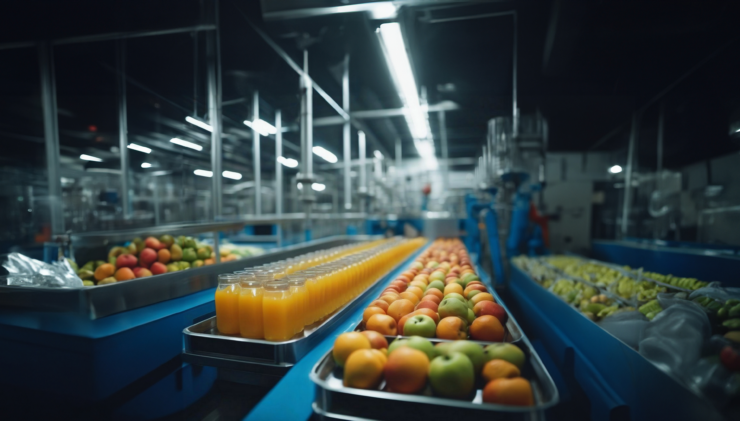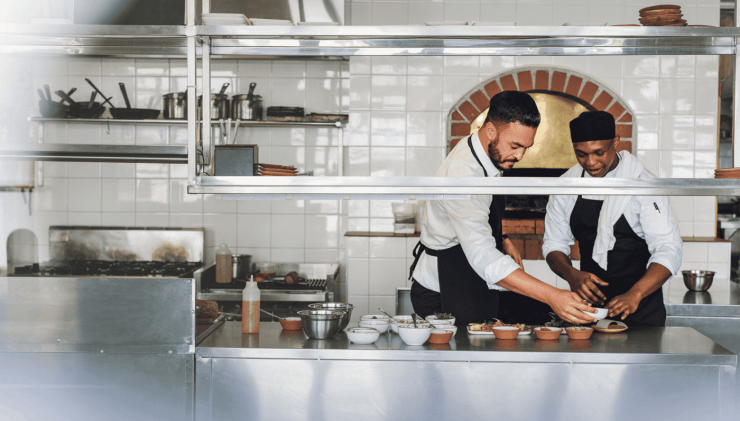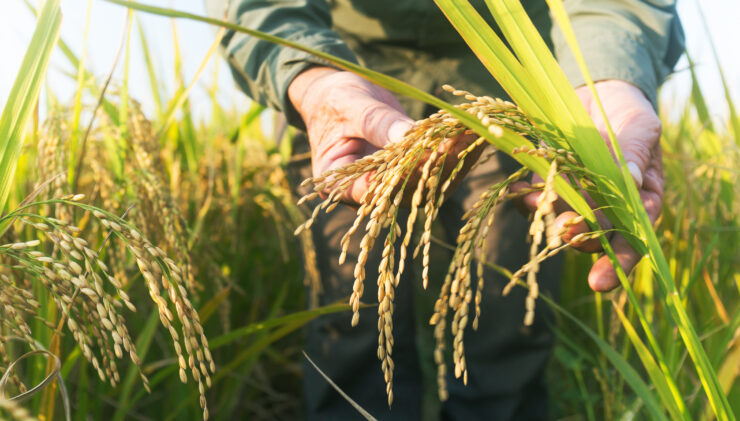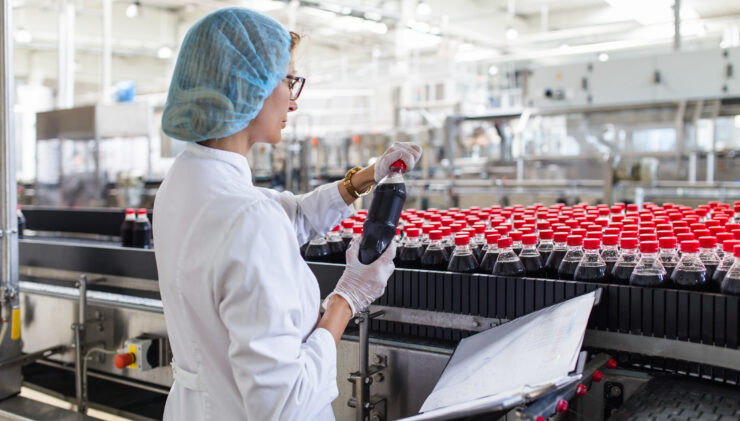 Insurance for Food and Beverage Companies – 7 Questions to Ask
Insurance for Food and Beverage Companies – 7 Questions to AskThe holiday season is always a busy time for the hospitality industry. This year, the surge in resignations and difficulty hiring may mean that restaurants, hotels, bars, caterers, and others in the food service industry are stretched even thinner than usual. As a result, some businesses may be looking to cut corners – but food handling safety should never be put on the back burner.
Food Dangers Put Customers and Businesses at Risk
Foodborne pathogens include various bacteria, viruses, and parasites, such as salmonella and norovirus. The CDC says that approximately 48 million people get sick, 128,000 people are hospitalized and 3,000 people die every year in the United States because of foodborne diseases.
When an outbreak of foodborne illness is connected to a business, that business may face expensive lawsuits and fines. The business may also experience reputational damage and lose revenue.
QSR says that a single foodborne illness outbreak can cost a fast-casual restaurant between $6,300 and $2.1 million, while a fine-dining restaurant could lose between $8,273 and $2.6 million. The estimates come from a study that examined how outbreaks of various sizes would impact different types of dining establishments.
Food Handling Safety Best Practices
Bad habits can develop over time and can put your business at risk for an outbreak of foodborne illness. Audit your food handling safety practices and address any issues that you uncover. Also, make sure that new workers are being thoroughly trained on food handling safety issues.
Businesses in the hospitality and food industries have many food handling safety issues to cover. Here’s a look at three common issues:
- Maintain a safe temperature. The USDA says that 40° F to 140° F is the “danger zone,” a temperature range that allows dangerous bacteria to double in as little as 20 minutes. Hot food must be kept at or above 140° F, and cold food must be kept at or below 40° F. Food should not be left unrefrigerated for more than two hours, or one hour when the temperature is above 90° F, and food should be reheated thoroughly to an internal temperature of 165° F. Train workers on keeping logs to track the holding time and temperature.
- Avoid cross-contamination. Foodborne pathogens can spread from one item to another if you’re not careful. To prevent food poisoning through cross-contamination, FoodSafety.gov says it’s important to wash hands, utensils, and surfaces often. It’s also important to keep certain items separated. For example, separate cutting boards should be used for fresh produce that won’t be cooked versus raw meat. Educate workers on the importance of good hygiene in the kitchen.
- Beware of alcohol liability. The National Conference of State Legislatures says that 30 states have laws that allow restaurants, bars, and other businesses to be held liable for selling or serving alcohol to individuals who cause injury or death because of their intoxication. Make sure you’re checking IDs, and train workers on what to do when customers are clearly intoxicated.
Is Your Business Protected?
Food handling safety issues are a key concern for the hospitality industry. To manage your risks, you need a combination of strong safety practices and the right insurance coverage. Heffernan offers specialized risk management and hospitality insurance programs for restaurants, bars, caterers, hotels, and other businesses in the hospitality industry.
Contact us today to learn more!



